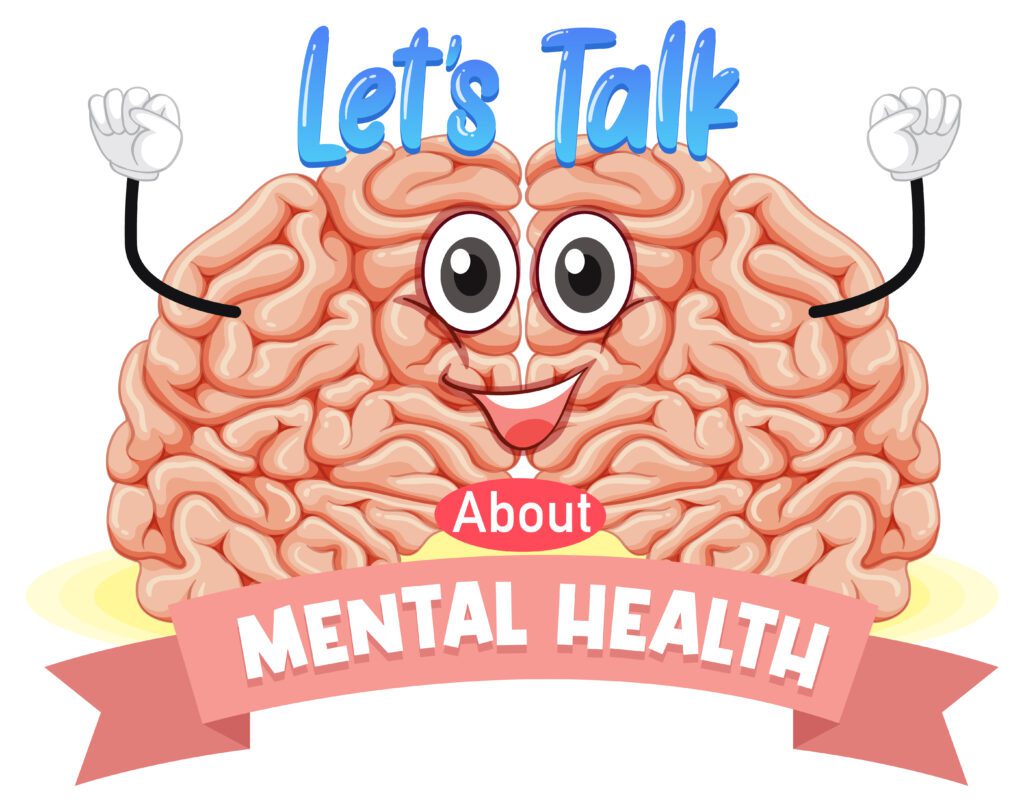Know Gut-Brain Connection

The term “gut-brain connection” refers to the intricate interactions between the gastrointestinal system and the central nervous system (CNS) that take place when there is bidirectional communication between the gut and the brain. Recent scientific studies have emphasized the connection between diet and intestinal health and mental health and wellbeing.
According to a number of studies, the make-up of the gut microbiota, the diverse population of bacteria living in the digestive tract, may have an impact on how the brain and behavior. Neurotransmitters like serotonin and dopamine, which are essential for controlling mood, emotions, and cognition, are produced by the gut bacteria.
Serotonin, a neurotransmitter directly linked to mood regulation, is actually synthesized in the gut to a degree of about 90%. So Gut-Brain Connection is important for better health.
How Diet Affects Mental Health
The gut microbiota is significantly influenced by diet. Dysbiosis, a condition characterized by an imbalance in the gut microbiota, can be brought on by a diet high in processed foods, bad fats, and added sweets. Dysbiosis has been linked to a number of mental health issues, such as depression, anxiety, and stress-related diseases.
Contrarily, a balanced diet full of whole foods, fruits, vegetables, and fiber promotes the development of gut-friendly bacteria. Short-chain fatty acids (SCFAs), which have been associated with lowered inflammation and enhanced brain function, are produced by these bacteria. Additionally, a balanced diet offers necessary nutrients for optimum brain health, including omega-3 fatty acids, B vitamins, and minerals.
Furthermore, maintaining overall health depends on the gut barrier’s integrity, which regulates how substances move from the gut into the bloodstream. Increased gut permeability, sometimes known as “leaky gut,” can result from a diet high in processed foods and low in fiber.
As a result, it may be possible for dangerous agents like germs and toxins to enter the bloodstream and cause inflammation, which may affect brain function and worsen mental health conditions.
While diet can have an impact on mental health, it is crucial to remember that other factors also play a role. Numerous variables, such as heredity, environment, stress levels, and social support, have an impact on mental health.
Gut Health and Cognitive Decline
According to research, diseases like Alzheimer’s disease and cognitive loss, especially poor gut health, are related. Keeping your stomach healthy can help you stay mentally sharp as you age.
Practical Advice to Keep Your Gut and Mind Happy
Maintaining a healthy Gut-Brain Connection and a positive mindset is essential for overall well-being. Here are some practical tips to help you achieve a balance between a happy gut and a healthy mind.
To Promote Gut Health: Gut-Brain Connection
Eat a mix of fruits, vegetables, whole grains, lean proteins, and healthy fats. Diversify Your Diet. The diversity of the gut microbiome is encouraged by a varied diet, and this is linked to greater digestive health.
Focus on fiber: Include foods high in fiber in your diet, such as whole grains, legumes, fruits, and vegetables. By encouraging regular bowel movements and nourishing healthy gut bacteria, fiber helps Gut-Brain Connection to work properly.
Probiotics and Fermented Foods: Include foods high in probiotics in your diet, such as yogurt, kefir, sauerkraut, kimchi, and kombucha. These meals help digestion by introducing healthy bacteria to your gut.
Keep Hydrated: To support healthy digestion and all bodily processes, drink lots of water throughout the day.
For a Positive Mindset: Gut-Brain Connection
Practice awareness: To lessen stress and encourage a peaceful and centered mentality, try yoga, deep breathing, or mindfulness meditation.
Stay Active: Studies have shown that regular exercise improves mood, lowers stress, and improves general mental health.
Prioritize Sleep: Prioritize To get 7-9 hours of good sleep each night, set a goal. For mental acuity, emotional stability, and general cognitive function, sleep is essential.
Stay Socially Connected: Maintain Relationships with Friends and Family to Stay Socially Connected: Social connections are essential for emotional well-being.
Practice Gratitude: Keep a gratitude notebook or set aside some time each day to think on the good things in your life as a way of cultivating thankfulness.
Limit Screen Time: Limit your use of screens, especially right before bed, as this can disrupt your sleep and increase your anxiety.
Conclusion
In conclusion, the gut-brain connection emphasizes the connection between food and mental health. A balanced gut microbiota supported by a nutritious diet and a robust gut barrier may play a crucial role in improving mental health. Other positive lifestyle habits, you can pave the way for a happier mind and a healthier body.
However, it’s crucial to take a comprehensive approach to mental health that takes into account numerous elements and seek the guidance and treatment of medical professionals.
[…] Health and Gut Wellness: Fermented foods and beverages are rich in probiotics, which are beneficial bacteria that support gut health. Many people are incorporating fermented foods like yogurt, kefir, sauerkraut, kimchi, and kombucha into their diets to promote digestive health and boost their immune systems. […]